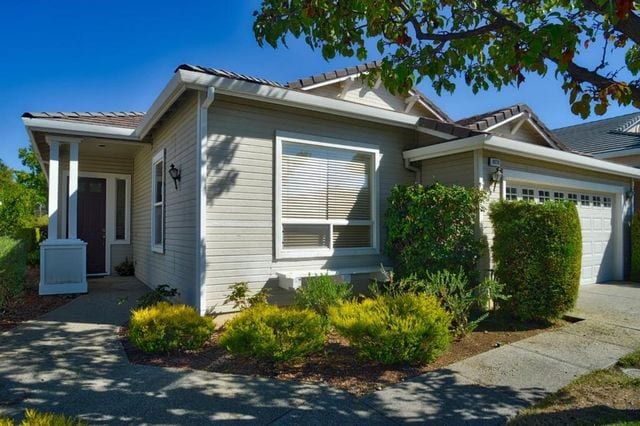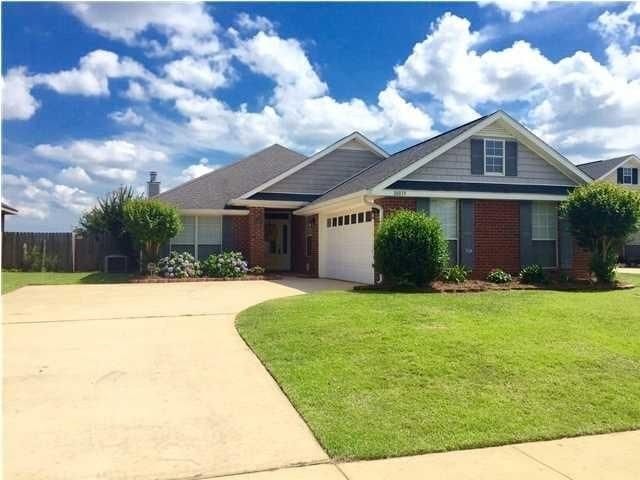In this article:
Property values in the US began climbing out of their post-Recession trough about six years ago, and some neighborhoods are skyrocketing. But you want to know, "What's MY house worth?" There are several ways to ballpark your property value:
- Automated Valuation Model (AVM)
- Comparative Market Analysis (CMA)
- Broker Price Opinion (BPO)
- Home Appraisal
These are listed from the cheapest (and least accurate) to the most accurate and expensive.
Verify your new rateLocation, location, location
Your property location is probably the biggest factor in determining its value. It’s more important than square footage, condition, or features. "What's my house worth?" will be a lot different in Manhattan or Beverly Hills than in Ames Iowa or Mobile Alabama.
For instance, consider two similar properties in different parts of the country:
San Jose, California
This 2,032 square foot home with three bedrooms and two bathrooms is the cheapest single family house for sale in San Jose, California, according to Realtor.com. Its asking price is $988,000.

Mobile, Alabama
Meanwhile, this similar Mobile, Alabama house, with three bedrooms, two baths, and 2,173 square feet, lists for just $169,900.

There are many real estate sites that can provide average prices, value per square foot, and general trends for your locale.
Within your neighborhood, home values come in higher or lower than average depending on their size, features, build quality, lot, schools and other factors. Real estate industry professionals analyze these components to come up with a price range for your home.
Determining your home value
There are four primary methods of estimating your property value. Their cost and degree of accuracy vary. They are, from least to most accurate:
- Automated Valuation Model (AVM)
- Comparative Market Analysis (CMA)
- Broker Price Opinion (BPO)
- Home Appraisal
The one you choose depends on your goals. Each valuation tool has its merits and drawbacks.
Automated Valuation Model (AVM)
Automated valuation models, or AVMs, can be found online for free, and they estimate your property value by analyzing local listings and public record data, determining trends, and applying them to your property.
If recently-sold, similar-sized homes (“comps”) in your area are changing hands for ten percent more than they did when you purchased your property, your estimated value will probably be about ten percent more than your purchase price.
This is a pretty basic evaluation.
Related: Help! I need to appeal my home appraisal!
Obviously, the software has no way of telling if you just gutted your kitchen and added $50,000 in equity, or if your eccentric neighbor destroyed your view by painting his garage Barbie pink.
An AVM doesn’t always “know” if some of the comps were distress sales, artificially lowering their prices, or if defects in a comp’s title affected its value.
AVMs are useful for demonstrating trends – the direction and extent of changes in area values -- but they’re much less helpful for valuing specific property.
Arturo Garcia, the chief operating officer and co-founder of Platinum Data Solution, claims, “The difference between the right and wrong AVM can be a 20% or even 30% to 40% difference in value.”
Verify your new rateCMA and BPO
You can always get a free (usually) home value estimate from a real estate broker or agent – they do them all the time for potential home sellers.
This client sales presentation (for that’s what it is) is called a CMA, or Comparative Market Analysis.
The CMA is only as accurate as the agent’s knowledge of the area – they typically “eyeball” property differences and make judgments based on their experience.
However, you should understand that agents’ main business is not evaluating -- they might overstate your value to get your listing.
Related: How to buy a short sale property
A potentially more accurate approach is paying for a broker price opinion or BPO. Brokers with BPOR certification from the National Association of Realtors have completed special training to do this work, and lenders often commission BPOs to determine the value of foreclosure homes before putting them up for sale.
To perform a BPO, the broker examines three recent local sales of property similar to yours, and three currently-listed houses compare their condition and features to yours, makes numeric adjustments according to formulas, and offers a value estimate.
A BPO costs between $50 and $125 for a typical home.
Home appraisal
Home appraisers are highly-trained, licensed professionals who can determine a very accurate value for your home. If you really, really want to know "What's my house worth?" and am willing to pay good money for that knowledge, this is your method.
They inspect and measure your house, noting its condition, amenities, and any issues that might impact its marketability – zoning, “offbeat” floor plans, environmental hazards, renovations, deferred maintenance, lot characteristics, and more.
How appraisals work
There are three valuation approaches an appraiser might apply:
- Market
- Cost
- Income
The market or comparable sales approach is the most commonly used. The appraiser examines several similar, nearby, recent sales, and compares those homes, line-by-line, to yours. Differences are assigned values.
If you and your neighbors have identical homes in the same track, but yours has a view of the city lights, and theirs has a view of a parking lot, your home value might get an upward adjustment of $20,000 for its superior view.
And if your neighbor’s roof is new, and yours is not, you might get a downward $5,000 adjustment for that. Once all the adjustments are netted, you have an appraised value.
Related: What s a home appraisal, and why do I need one?
The second approach estimates what it would cost to purchase your lot and build a house like yours, then subtracts depreciation.
This method is useful if you’re valuing your home for insurance purposes.
For the income approach, an appraiser researches rental data to determine what your home would rent for on the open market and applies one or more formulas – typically gross rent multipliers or capitalization rates – to extrapolate your property value.
This approach is most commonly used for investors and landlords.
An appraisal by a licensed professional who knows your neighborhood is the most accurate way to determine your home value. Appraisals usually cost between $250 and $1,000, depending on the size of the house and the complexity of the job.
What's my house worth? It depends
How should you answer the question, "What's my house worth?" It depends on why you're asking.
If you're just curious, check a few AVMs to get a general idea.
If you're thinking about selling, check the AVMs and ask a couple of agents for a CMA. Keep in mind that the value they come up with may be slightly high.
If you want your lender to allow a short sale, you'll need a BPO. However, the lender will probably order and pay for it, so you may not want to spend the money. BPOs are also used in litigation or divorce proceedings.
Appraisals are almost always required when you finance property with a mortgage lender. You will almost certainly have to pay for it, and you have a right to a copy of the report.
What are today's mortgage rates?
If your home value supports a refinance, today's rates might make it worth your while. Check out available programs and interest rates as long as you're checking property values.
Time to make a move? Let us find the right mortgage for you